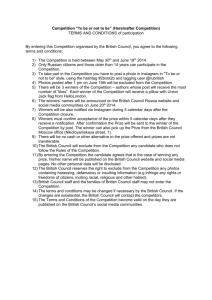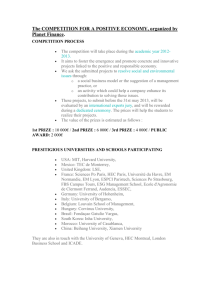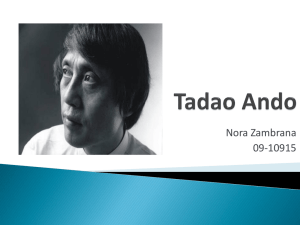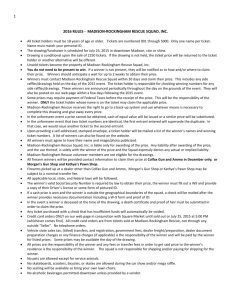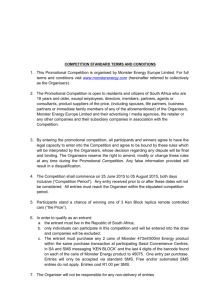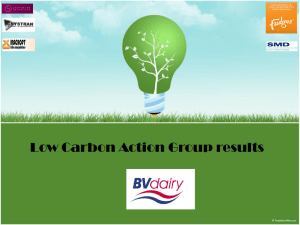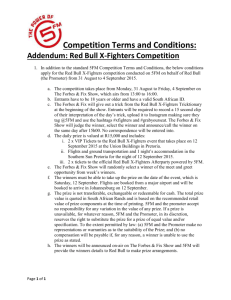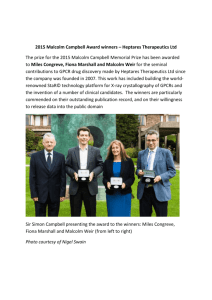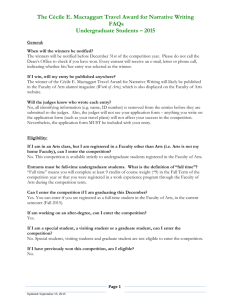European_Award_Press_Release_English
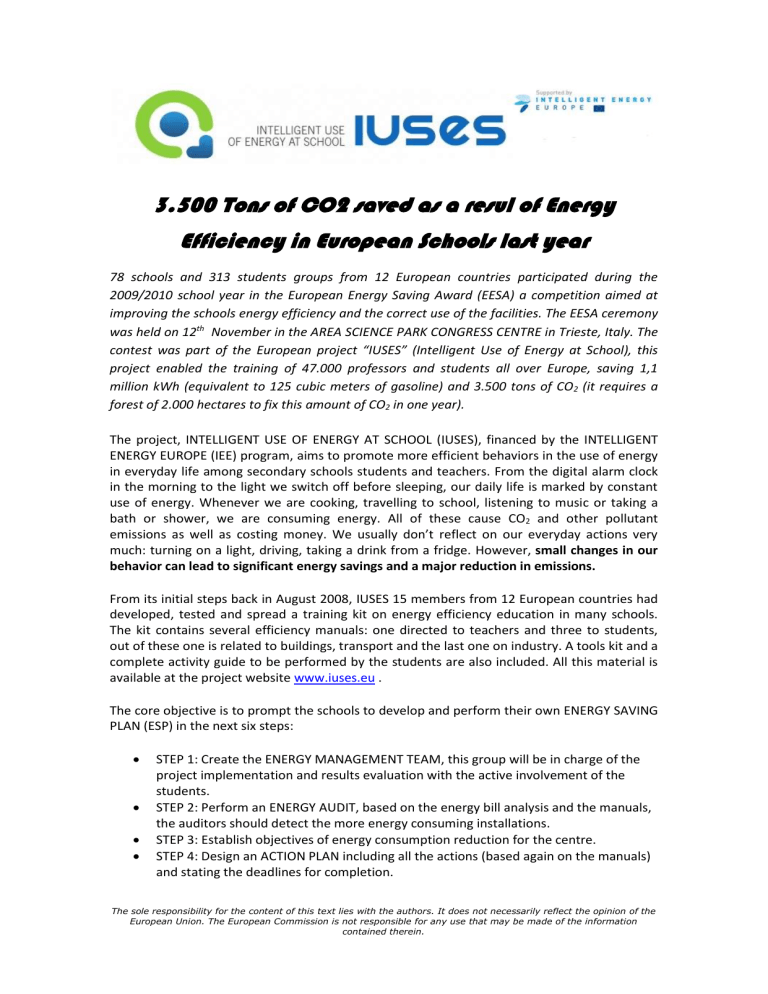
3.500 Tons of CO2 saved as a resul of Energy
Efficiency in European Schools last year
78 schools and 313 students groups from 12 European countries participated during the
2009/2010 school year in the European Energy Saving Award (EESA) a competition aimed at improving the schools energy efficiency and the correct use of the facilities. The EESA ceremony was held on 12 th November in the AREA SCIENCE PARK CONGRESS CENTRE in Trieste, Italy. The contest was part of the European project “IUSES” (Intelligent Use of Energy at School), this project enabled the training of 47.000 professors and students all over Europe, saving 1,1 million kWh (equivalent to 125 cubic meters of gasoline) and 3.500 tons of CO
2
(it requires a forest of 2.000 hectares to fix this amount of CO
2
in one year).
The project, INTELLIGENT USE OF ENERGY AT SCHOOL (IUSES), financed by the INTELLIGENT
ENERGY EUROPE (IEE) program, aims to promote more efficient behaviors in the use of energy in everyday life among secondary schools students and teachers. From the digital alarm clock in the morning to the light we switch off before sleeping, our daily life is marked by constant use of energy. Whenever we are cooking, travelling to school, listening to music or taking a bath or shower, we are consuming energy. All of these cause CO
2
and other pollutant emissions as well as costing money. We usually don’t reflect on our everyday actions very much: turning on a light, driving, taking a drink from a fridge. However, small changes in our
behavior can lead to significant energy savings and a major reduction in emissions.
From its initial steps back in August 2008, IUSES 15 members from 12 European countries had developed, tested and spread a training kit on energy efficiency education in many schools.
The kit contains several efficiency manuals: one directed to teachers and three to students, out of these one is related to buildings, transport and the last one on industry. A tools kit and a complete activity guide to be performed by the students are also included. All this material is available at the project website www.iuses.eu
.
The core objective is to prompt the schools to develop and perform their own ENERGY SAVING
PLAN (ESP) in the next six steps:
STEP 1: Create the ENERGY MANAGEMENT TEAM, this group will be in charge of the project implementation and results evaluation with the active involvement of the students.
STEP 2: Perform an ENERGY AUDIT, based on the energy bill analysis and the manuals, the auditors should detect the more energy consuming installations.
STEP 3: Establish objectives of energy consumption reduction for the centre.
STEP 4: Design an ACTION PLAN including all the actions (based again on the manuals) and stating the deadlines for completion.
The sole responsibility for the content of this text lies with the authors. It does not necessarily reflect the opinion of the
European Union. The European Commission is not responsible for any use that may be made of the information contained therein.
STEP 5: Plan implementation looking for the active involvement of the entire community.
PASO 6: Monitor energy consumption and results evaluation.
Practical knowledge, as in sports, is based on practice and the best way to learn to save energy is saving it. Following this “leitmotiv” the EUROPEAN ENERGY SAVING AWARD (EESA) came to life, a competition at two levels: national and international. This project called the secondary schools to practice energy efficiency during the 2009/2010 on three categories:
SHOOLS
STUDENTS
MULTIMEDIA
In the two first categories the key points were the coherence of the application of the ESP: energy consumption study, energy savings estimations and achievements, also how effective and replicable were the actions taken. In the Multimedia category it was valued the originality of the material as well as the impact of the action and the artistic quality.
There were 12 national competitions and 78 school participating in the first category, 126 groups of students in the second one and 187 groups of students in the Multimedia. The award allowed the diffusion of the energy efficiency contents to 47.000 professors and students all over Europe, saving 1,1 million kWh (equivalent to 125 cubic meters of gasoline) and 3.500 tons of CO2 (it requires a forest of 2.000 hectares to fix this amount of CO2).
The country level winners in the three categories moved on to the European level competition.
The award ceremony took place at the AREA SCIENCE PARK CONGRESS CENTRE in Trieste
(Italy) the last 12 of November. Energy and education authorities representatives attended the ceremony: Francesca Burgos and Arturo Campanella from the Italian Ministry of Education,
Patrizia Pavatti from the Education Councillorship of the Friuli Venezia Giulia region and Martin
Eibl Project Officer from the Executive Agency for Competitiveness and Innovation (EACI). The
Multimedia material was projected at the event as well as the achievements of the national winners. There was also at display a practical demonstration of the IUSES educational kit and explanation panels showing the work done by the national winners of the EESA. The conference was attended by about 300 people including those watching it by the partners premises throughout Europe. The ceremony included the Italian and Slovenian national prize giving ceremonies. The European winners are:
Category: Schools
1st prize winner: “Effic - Energ – School”, Mihai Bravu” Technical College (Bucharest) -
Romania
2nd prize winner: “Intelligent Use of Energy”, Colegio Salesianos Ntra.Sra. Del Pilar”
(Zaragoza) - Spain
3rd prize winner: “School Energy plan” , ITSCG ‘A. Martini’ CASTELFRANCO (Treviso) -
Italy
Category: Individual students
1st prize winner: “Our Everyday Energy – Case Study” - Ion Creanga Highschool
(Bucharest) - Romania
The sole responsibility for the content of this text lies with the authors. It does not necessarily reflect the opinion of the
European Union. The European Commission is not responsible for any use that may be made of the information contained therein.
2nd prize winner: “Ecologicamente” - students: Riccardo Cariolato, Andrea Nicoletti,
Matteo Pretto - Liceo Scientifico Statale ‘GG Trissino’ (Valdagno - Vicenza) – Italia
3rd prize winner: “Responsible Consumption for a Sustainable World” - IES Sierra de
Guara (Huesca) - Spain
Category: Video and multimedia
1st prize winner: “I Can” Dublin - Ireland
2nd prize winner: “It's time to change” - Monreal del Campo (Teruel) - Spain
3rd prize winner: “The Noise” - Novo Mesto - Slovenia
There are no winners and losers in this contest, but only winners if we all learn how to save energy. The motto “learning by doing” fits perfectly to the spirit of IUSES which legacy takes form of an educational material tested by thousands of students in 12 European countries, experience that will be share among their relatives and friends.
Energy saving is present in all those little acts that form our daily life, saving energy starts with a simple change of attitude.
The sole responsibility for the content of this text lies with the authors. It does not necessarily reflect the opinion of the
European Union. The European Commission is not responsible for any use that may be made of the information contained therein.
